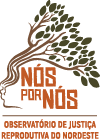We about us
We for We – Observatory of Reproductive Justice of the Northeast is one of the projects of Odara – Instituto da Mulher Negra or a black feminist organization, centered on the African legacy, based in Salvador, Bahia. Starting in 2022, We for We aims to collaborate through research and studies on Reproductive Justice for the advocacy and incidence of black women in the Northeast and on the public policy agenda in the region.
In September 2023, we launched this website that makes our research, bibliographical indications, cases of violence public and we propose a space for dialogue between activists, managers and professionals so that they can contribute to the fight for reproductive justice, guaranteeing rights and combating racism , sexism and other related oppressions in the northeast region.
We aim to bring to the center of the analysis the reality of black women in the Brazilian Northeast, thinking about their trajectories of reproductive (in)justice related to the right to health, the right to desired and dignified motherhood, the right to legal abortion, obstetric violence (in childbirth and abortion), sexual abuse, maternal mortality, among others.
Our commitment is to fight for a society in which there is social justice and good living!
Photo: Marcello Casal Jr.
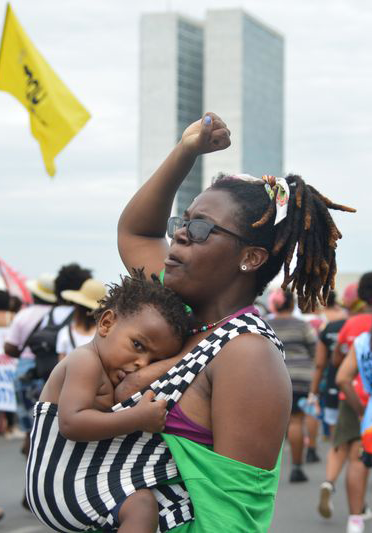
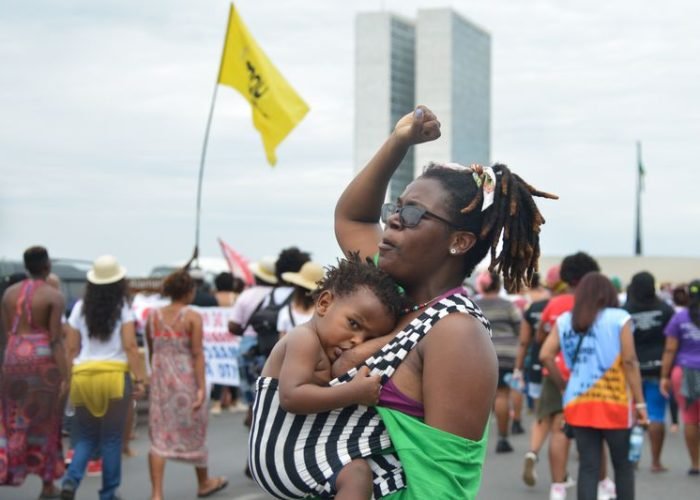
We about us
We for We – Observatory of Reproductive Justice of the Northeast is one of the projects of Odara – Instituto da Mulher Negra or a black feminist organization, centered on the African legacy, based in Salvador, Bahia. Starting in 2022, We for We aims to collaborate through research and studies on Reproductive Justice for the advocacy and incidence of black women in the Northeast and on the public policy agenda in the region.
In September 2023, we launched this website that makes our research, bibliographical indications, cases of violence public and we propose a space for dialogue between activists, managers and professionals so that they can contribute to the fight for reproductive justice, guaranteeing rights and combating racism , sexism and other related oppressions in the northeast region.
We aim to bring to the center of the analysis the reality of black women in the Brazilian Northeast, thinking about their trajectories of reproductive (in)justice related to the right to health, the right to desired and dignified motherhood, the right to legal abortion, obstetric violence (in childbirth and abortion), sexual abuse, maternal mortality, among others.
Our commitment is to fight for a society in which there is social justice and good living!
Photo: Marcello Casal Jr.
Meet the women who make up this initiative to guarantee rights around reproductive justice in the Northeast.
Executive coordination
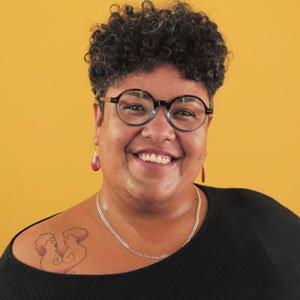
Naiara Leite
Naiara is an activist in the black women’s movement, Journalist and Master in Communication. She is the Executive Coordinator of Odara – Black Women’s Institute and also works in the coordination of the Northeast Black Women’s Network. She is part of the Articulation of Brazilian Black Women’s Organizations (AMNB) and the Red de Mujeres Afrolatinoamericanas, Afrocaribeñas y de la Diáspora.
Observatory Team
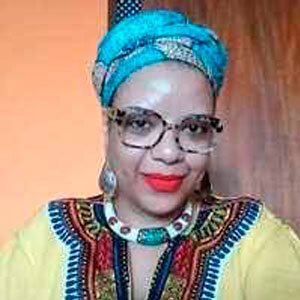
Emanuelle Góes
Pesquisadora Associada (CIDACS/Fiocruz/Bahia). Professora Colaboradora no Programa de Pós-graduação em Saúde Coletiva (ISC/UFBA). Fellow do Ubuntu Center on Racism, Global Movements, and Population Health Equity (Drexel University). Coordenação Cientifica na Associação de Pesquisa Iyaleta – Pesquisa, Ciências e Humanidades.
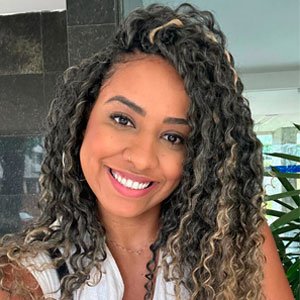
Tamiz Lima
Doutoranda em Saúde Coletiva na Universidade Federal da Bahia(ISC/UFBA), Possui Mestrado em Relações Étnicas e Contemporaneidade pela Universidade Estadual do Sudoeste da Bahia (2019); graduação em Serviço Social pela Universidade Federal do Recôncavo da Bahia (2014), Colabora do Odara Instituto da Mulher Negra.

Veronica Santos
Psicóloga pela UFRB, Mestra em Psicologia (UFAL), Doutoranda em Saúde Coletiva (ISC/UFBA), Colaboradora do Odara Instituto da Mulher Negra, Militante da Saúde Mental da População Negra.

Emanuelle Góes
Associate Researcher (CIDACS/Fiocruz/Bahia). Collaborating Professor in the Postgraduate Program in Public Health (ISC/UFBA). Fellow at the Ubuntu Center on Racism, Global Movements, and Population Health Equity (Drexel University). Scientific Coordination at the Iyaleta Research Association – Research, Sciences and Humanities.

Tamiz Lima
PhD student in Public Health at the Federal University of Bahia (ISC/UFBA), holds a Master’s degree in Ethnic Relations and Contemporaneity from the State University of Southwest Bahia (2019); degree in Social Service from the Federal University of Recôncavo da Bahia (2014), Collaborator with the Odara Instituto da Mulher Negra.

Veronica Santos
Psychologist from UFRB, Master in Psychology (UFAL), PhD student in Public Health (ISC/UFBA), Collaborator at the Odara Institute of Black Women, Campaigner for the Mental Health of the Black Population.
Communication Team
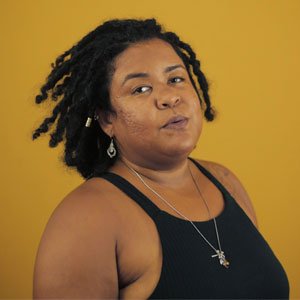
Alane Reis
Is a Journalist, Master in Communication, Researcher on Black Media and Political Nation Project. She is an activist at Odara – Instituto da Mulher Negra, an organization where she also works as coordinator of the Communication Program. She coordinates the Network of Black Women of the Northeast – also acting as communications coordinator – and coordinates the communication of the Articulation of Brazilian Black Women’s Organizations (AMNB). She is Executive Coordinator and Content Editor at Revista Afirmativa.

Brenda Gomes
Is a Journalist specializing in Project Management. She has experience in content, press relations, social media and events. She believes in the power of words to create connections and change.
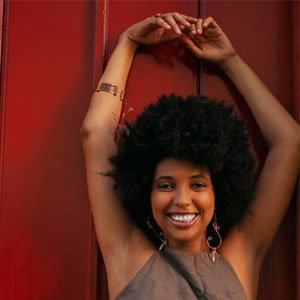
Jamile Novaes
Is an activist in the black women’s movement and a journalist graduated from the Federal University of Recôncavo da Bahia (UFRB). She works in the Communication Program of Odara – Institute of Black Women and the Articulation of Organizations of Black Brazilian Women (AMNB). She is a communications advisor at Odé Produções.
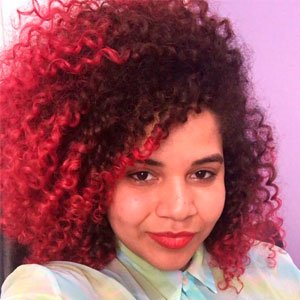
Joanna Bennus
Is an activist in the black women’s movement, a writer, producer, activist and communicator graduated from the State University of Bahia (UNEB). She is part of the Communication Program at the Odara Institute and the Network of Black Women of the Northeast.
PLs Research Team

Amanda Atiladé
Mother of João, Iam and Maya, member of the Coletivo de Mulheres Negras As Carolinas, initiated by Oya – lady of the winds – and apprentice of Jurema, a black African woman in the diaspora. Businesswoman at Macumbaria Moderna.
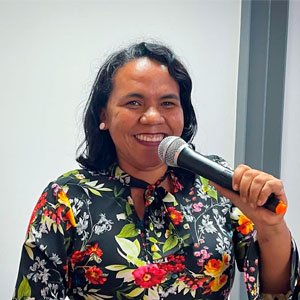
Crys Rego
Black, feminist and anti-racist woman. Pedagogue and Specialist in Public Policy Management on Gender and Race, graduated from the Federal University of Maranhão (UFMA). She works as a special advisor at the State Secretariat for Human Rights and Popular Participation of the State of Maranhão and participates in the executive coordination of the Maranhão Black Women’s Network.

Daniele Braz
Economist, anti-racist and human rights activist, and technical project advisor, educator at Grupo Curumim and black feminist at the Rede de Mulheres Negras de Pernambuco.
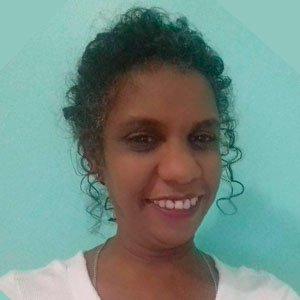
Dayse Ramos
Black woman, teacher, popular educator, activist with the Self-Organization of Black Women Rejane Maria, coordinates the Black Forum and Northeast Commission for Black Women in Sergipe Politics. She is part of the Sergipe Black Women’s Network.
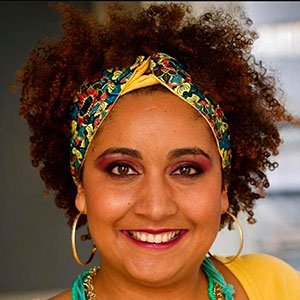
Jamile Godoy
Young black woman, Anthropology student at the Federal University of Paraíba (UFPB). Youth Specialist, Social Educator, Activist of the Network of Catholic Young Women for the Right to Decide and the Black Women’s Movement in Paraíba.
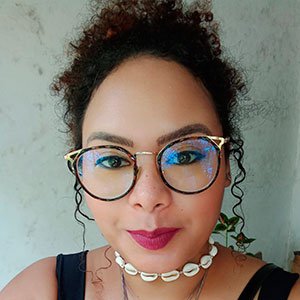
Luana Silva
Black, feminist and anti-racist woman. Social Worker, specialist in Gender and Diversity at School from the Federal University of Alagoas (UFAL). She works in social projects as a health educator.
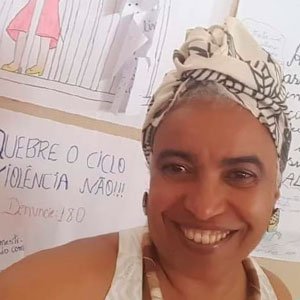
Lúcia Azevedo (Lucinha)
Black, feminist and anti-racist woman. Popular Educator, Pedagogue, Specialist in Black Women’s Health from the Federal University of Maranhão (UFMA), Educator at the AKONI Citizenship Training Center, Member of the Maranhão Black Women’s Network – REMNEGRA.
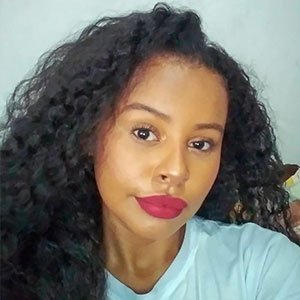
Maria Elvira Silva de Sousa
Ceará, biologist, professor of Science and Biology. Member of the Ceará Black Women’s Network, fighting for Good Living for the black population.
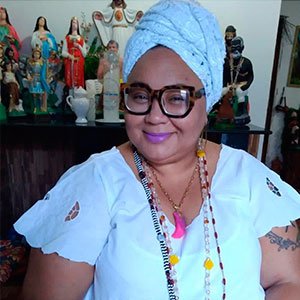
Mãe Joelfa de Xangô
Priestess of Ilê Axé Obà Orum – Quilombo do Pai Zé Pretinho, black, lesbian, Axé woman, Social Worker, specialist in public policy for women, researcher at the Institute of Black Women of Piauí – Ayabás, turban maker and Afro-entrepreneur at Quitanda das Pretas.
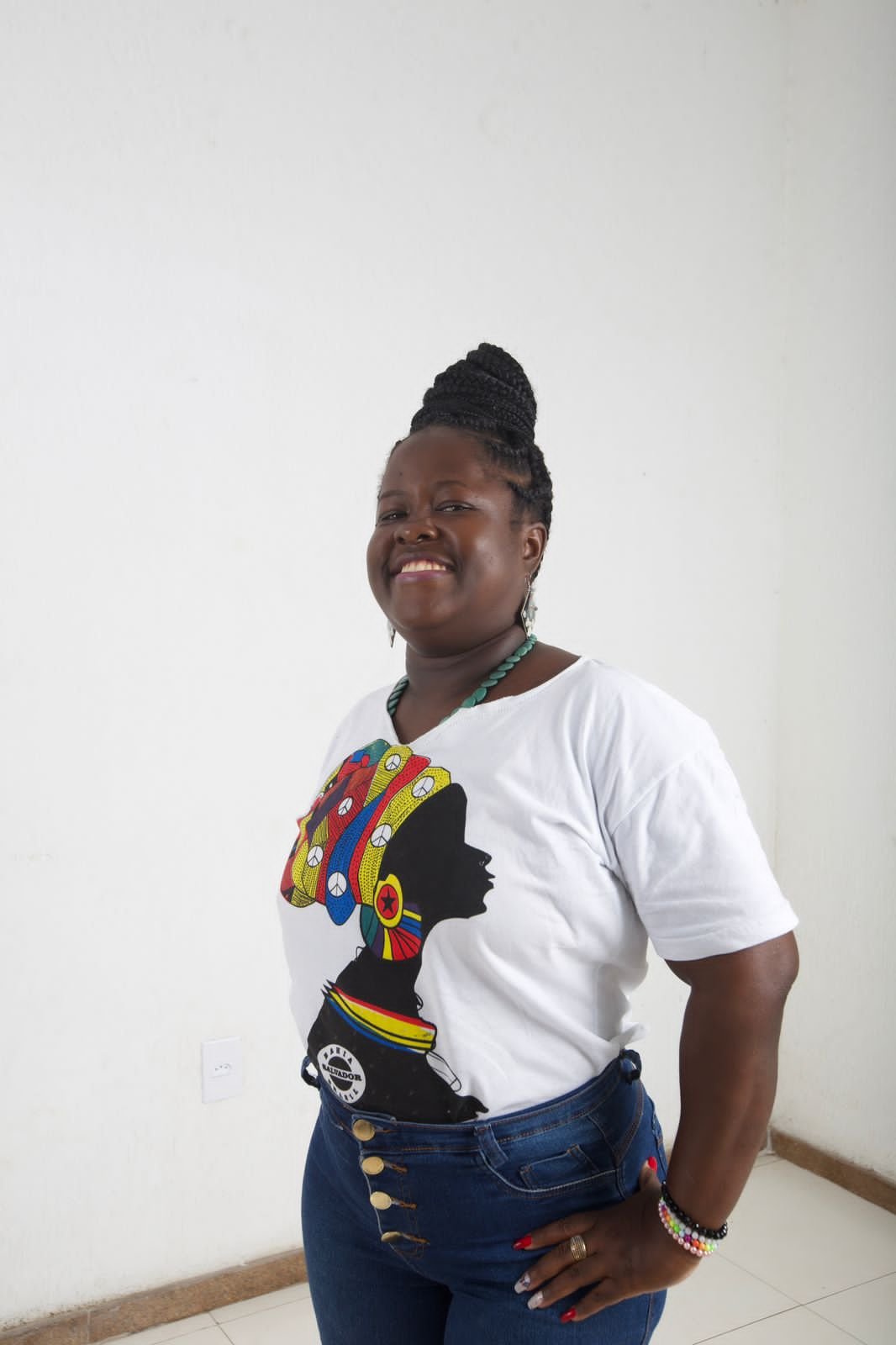
Gil Porto (In memory)
Gilcinar Santos Porto, our late Gil, born in Sergipe, was a black woman and daughter of an axé from Ilè Àsé Ojú Ifá Ni Sahara. Black feminist activist, leader of the Pantanal community and activist for the animal cause and the reggae movement in Sergipe, Gil joined the women of the Self-Organization of Black Women of Sergipe Rejane Maria.
She was one of those responsible for organizing, within the 2018 Julho das Pretas program, the Encontro de Crespas e Cacheadas, held in the Pantanal and Jardim Esperança communities . It was also Gil who organized recreational activities for children and professional training workshops for young people and adults in these communities, especially for black women.
In the research process for Nós Por Nós, Gil was a very important collaborator and researcher. With her experience as an activist in the black women’s movement, her critical outlook and sensitivity were fundamental in helping us identify Bills relating to the topic of Reproductive Justice and their possible impacts on the lives of black women.
Gil leaves us a legacy of great struggle, joy, strength and determination. His trajectory is an example for all of us.
Thank you for everything, companion!
Communication Mapping Research Team
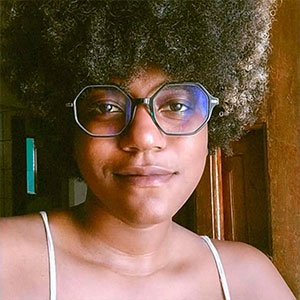
Eduarda Nunes
Journalist graduated from the Federal University of Pernambuco (UFPE) and specialist in Law, Gender and Ethnic-racial Relations from the University of Pernambuco (UPE). Activist of the black movement in Pernambuco and independent communicator for Retruco and Favela em Pauta, independent journalism platforms focused on the Northeast and the country. She was one of the honorees of the Neusa Santos Journalism Award in 2020 and also works as a freelance reporter .
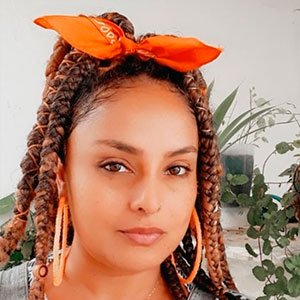
Jô Pontes
Graduated in journalism, she is a popular educator, cultural producer, peripheral and DJ. She is part of the Paraíba Black Women’s Movement.


